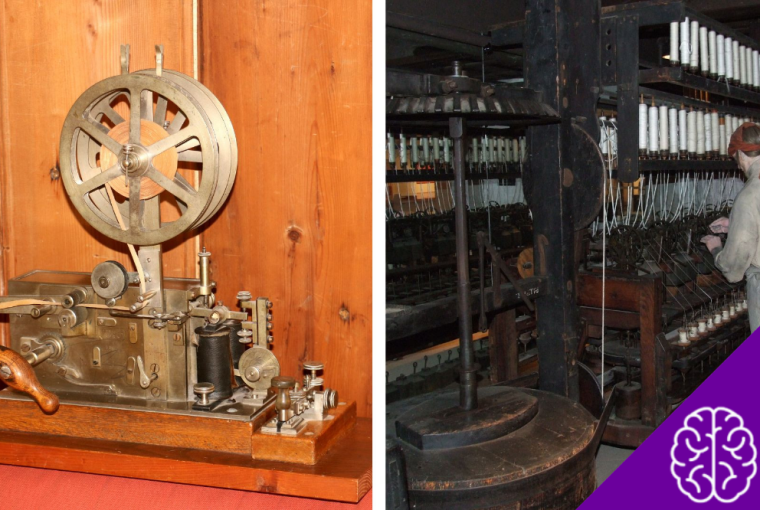Some of the most revolutionary inventions in history didn’t come from meticulous planning or deliberate genius. Instead, they were accidents, born from unexpected discoveries or mistakes that turned out to be game-changers.
From the indispensable microwave to the quirky Post-its and even medical breakthroughs like Viagra, these technologies remind us that sometimes, serendipity can lead to brilliance. This blog will explore the fascinating stories behind these accidental inventions and how they went on to change the world.
The Microwave Oven: A Sweet Accident
How It Was Discovered
The origins of the microwave oven trace back to 1945, thanks to Percy Spencer, an engineer at Raytheon. While working on radar technology using magnetrons, Spencer noticed that a candy bar in his pocket had melted.
Intrigued, he experimented further by placing popcorn kernels and a raw egg near the magnetron, both of which produced astonishing results.
This led to the realization that microwaves could cook food quickly and efficiently. By 1947, the first commercial microwave oven, the “Radarange,” was introduced. Although it was large and expensive at the time, it marked the beginning of a kitchen revolution.
Impact on the World
Today, microwave ovens are found in nearly every household, making everyday cooking faster, easier, and more convenient. They’ve redefined how we prepare meals, enabling everything from reheating leftovers to full-blown recipes centered around this appliance.
Post-it Notes: A Failed Adhesive That Stuck
The Unlikely Beginning
Sometimes, even failure can be useful. Post-it Notes owe their existence to Dr. Spencer Silver, a scientist at 3M, who accidentally developed a weak adhesive in 1968. While testing stronger adhesives, Silver created one that could stick lightly to surfaces and be removed without leaving a residue.
At first, the creation puzzled him since it was the opposite of what he was trying to invent. It wasn’t until years later that his colleague, Art Fry, realized the adhesive’s potential.
Fry was frustrated when bookmarks kept falling out of his hymnbook at church, so he applied Silver’s weak adhesive to paper strips, creating something that would stay put without damage.
A Global Sensation
After launching in 1980, Post-it Notes soon became a sensation worldwide. They are now a staple on desks, in schools, and even in creative projects. The invention stands as a testament to looking at failures from a different perspective.
Viagra: A Medical Coincidence
From Heart Patients to a New Purpose
Viagra’s beginnings are nothing like its current use. Initially developed by Pfizer in the 1990s, the drug (then known as sildenafil) was intended to treat heart-related chest pain known as angina.
However, clinical trials didn’t deliver the expected results. Instead, participants reported a surprising side effect that caught researchers’ attention.
Pfizer quickly pivoted, realizing the incredible potential of this “side effect” for treating erectile dysfunction (ED). By 1998, the FDA approved Viagra for this new purpose, and it became a groundbreaking treatment in men’s health.
Changing the Conversation on Health
Viagra not only addressed a widespread medical need but also played a significant role in breaking down stigma surrounding discussions of sexual health. Its success paved the way for the development of similar medications and opened conversations about related conditions.
Fireworks, Corn Flakes, and More
While the microwave, Post-its, and Viagra are some of the most famous examples, the list of accidental inventions goes on:
- Fireworks: Invented over 2,000 years ago in China, fireworks arose when a cook mixed sulfur, charcoal, and saltpeter, creating an explosive reaction.
- Corn Flakes: While attempting to make a healthy cereal at a sanitarium, Dr. John Harvey Kellogg and his brother accidentally left cooked wheat sitting out. The result? Flakes, which they toasted and transformed into the breakfast staple we love today.
- Penicillin: Alexander Fleming’s accidental discovery of penicillin in 1928 marked the beginning of modern antibiotics, saving millions of lives in the process.
What These Stories Teach Us
These accidental inventions highlight a crucial lesson across industries and disciplines: innovation thrives on curiosity and flexibility. The creators behind these technologies could have dismissed their “mistakes” as failures, but instead, they investigated further, leading to products that transformed lives.
This mindset is valuable for anyone. Whether in science, business, or creative work, unexpected outcomes can result in groundbreaking opportunities when met with an open mind and a willingness to explore.
What’s Your Next Great Accident?
Who knows what you might stumble upon accidentally? Whether you’re an entrepreneur, a scientist, or anyone with an eye for solving problems, remember that even “mistakes” can lead to remarkable discoveries.
Keep a curious mind and always explore the possibilities. After all, the next microwave, Post-it Note, or Viagra could be waiting for someone like you to uncover it!


